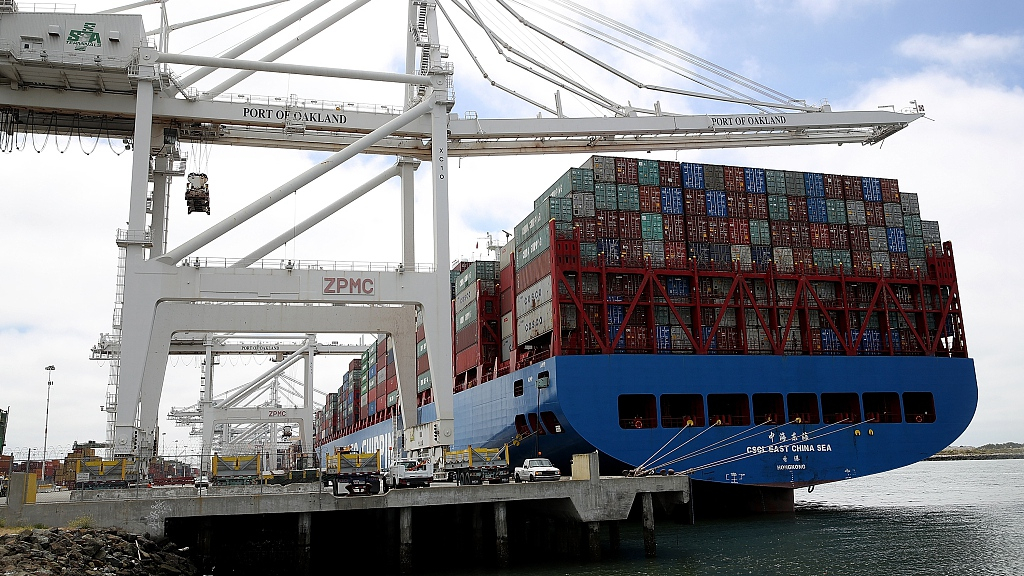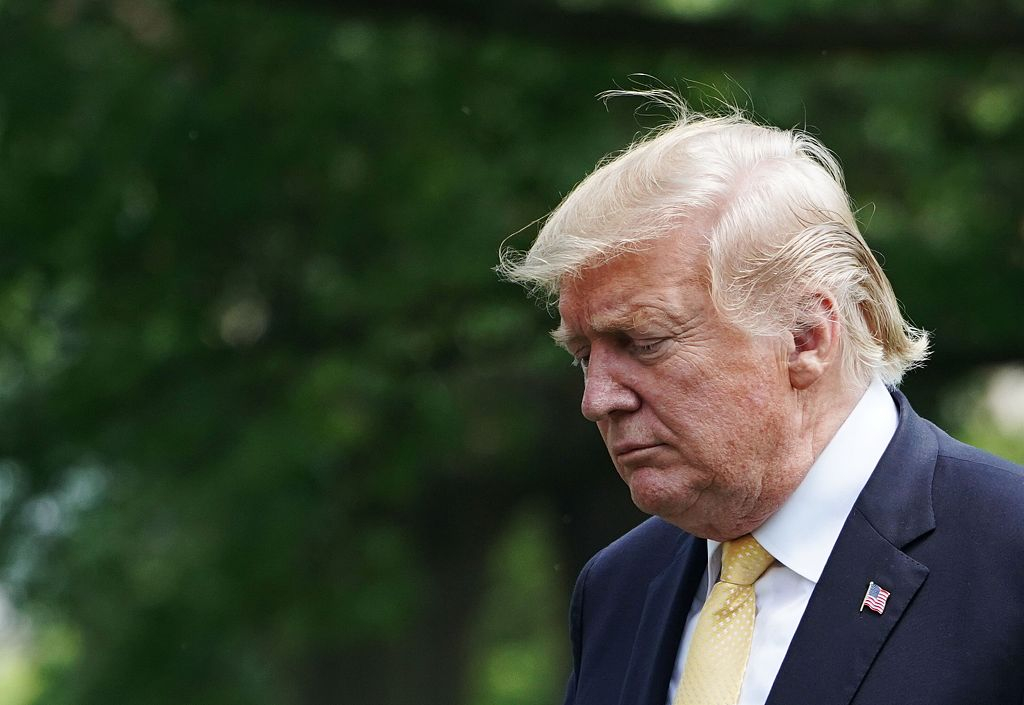
Opinion
08:00, 31-May-2019
Trade war goes into extra innings?
Bobby Naderi

Editor's note: Bobby Naderi is a journalist, current affairs commentator, documentary filmmaker and member of the Writers Guild of Great Britain. The article reflects the author's opinion, and not necessarily the views of CGTN.
President Donald Trump is still unable to grasp the reality, but his "powerful" tariffs on Chinese goods can only be a short-term punishment to a long-term trade deal. They were not built to go into extra innings or drag on for decades.
Much to the chagrin of the "tariff man," China has the financial firepower, technologies and materials at its disposal to punish the U.S., and Trump's trade skirmishes and shenanigans cannot hold up forever. They ultimately suppress investment, even in the U.S., as yields and consumer confidence fall and stocks sink, hitting hard the aviation, automotive and agricultural industries.
In this environment, if the U.S. seeks a deal, it must remain aware of several things.
First among them is the fact that it's not Trump coming to power that will make a trade deal with China possible. China says the deal has been on the table all along: the problem is that Trump wants it on his own terms only, which is silly at best and laughable at worst.
Related to the above, the impacts of the trade war on China are slipping with accumulating momentum at the moment. Maintaining unipolarity and dumping money into the market, including generous cash handouts to American farmers, have become an ever more forlorn endeavor for Trump and his trade-war enthusiasts.
This kind of policy cannot hold forever. American consumers and manufacturers both inside China and in the U.S. mourn Trump's inability to grasp this reality.

U.S. President Donald Trump looks down as he walks across the South Lawn after returning to the White House in Washington, DC, May 28, 2019. /VCG Photo
U.S. President Donald Trump looks down as he walks across the South Lawn after returning to the White House in Washington, DC, May 28, 2019. /VCG Photo
They are now playing defense because the damage is done. Many American manufacturers cannot change supply chains in the vicious cycle of weak growth in the U.S. economy. Treasuries are trading, but a lot of them negative, which is not a two- or three-week phenomenon.
That's what the Trumpsters should watch, not China and certainly not its exports. They better wake up and take care. Even if not everything is going low in the financial market, the trade war could lead to a recession in the United States.
As well, China doesn't need to cut off the U.S. in order to create real harm to its efforts to rebuild its high-technology industrial manufacturing sector.
Besides imposing tariffs on American goods, China has other strategies and cards, such as the ability to charge a much lower price to rare earth minerals within China than in the United States. On balance, this is not only just about building companies and the GDP, but creating jobs. That's really the game for China.
In this respect and others, it's not Chinese companies that the U.S. should be concerned about, but the literary Blue-Chip customers like GM, GE, Apple, Lockheed Martin, United Technologies Corporation, Johnson and Johnson, and Boeing.
They see this price disparity on rare earth as the mother of all threats. In the absence of a bilateral trade agreement, this is going to cause real harm to them – and to Trump's ego.
This creates the kind of leverage that China needs to win an unnecessary fight. China has 90 percent of the world's rare earth reserves, which gives the leg up that it needs. The whole or nothing is not the way forward. Price discrepancies are the real issue here.

A rare earth mine in Baiyun'ebo in Inner Mongolia Autonomous Region, China. /VCG Photo
A rare earth mine in Baiyun'ebo in Inner Mongolia Autonomous Region, China. /VCG Photo
However, this unwanted scenario could still be avoided if Trump stops kicking the can down the road and drops the ruinous tariffs altogether, which are actually tax on American consumers and companies. It's the only way to keep an equal playing field for American and Chinese manufacturers to compete.
In this environment, Trump cannot say "the U.S. is not ready to make a deal." His tariffs are hitting home hard while he took his own four-foot-tall trophy all the way from Washington to award a sumo grand champion in Tokyo. Conventional wisdom might suggest this is going to play out for some time, but after that, there won't be lots of fits and starts.
There should be a conclusion here, and it is all sides could get to a win on level ground. That's what many American companies in China and the U.S. expect to see. This doesn't have to be a generational struggle. As China and the U.S. have fundamentally different and complex systems, they won't change their economic structures.
No one in China or the U.S. expects a quick resolution, and they also don't want to get used to the tariffs. All that's needed is to pull back the course of the tariffs.
Progress in intellectual property and market access could come, too. But even if they come, they would not solve the issue of a large portion of the control of the Chinese economy by the state. These are non-market economy and the issue is how to interact with them in that context. This is the real challenge for Trump, something that cannot be negotiated away.
On that note, China alone is not going to pay hundreds of billions of U.S. dollars in tariffs as American families and companies will also afford the costs by tariffs. Trump should keep in mind that this is not "an easy war to win" and it won't turn out that way.
(If you want to contribute and have specific expertise, please contact us at opinions@cgtn.com.)

SITEMAP
Copyright © 2018 CGTN. Beijing ICP prepared NO.16065310-3
Copyright © 2018 CGTN. Beijing ICP prepared NO.16065310-3